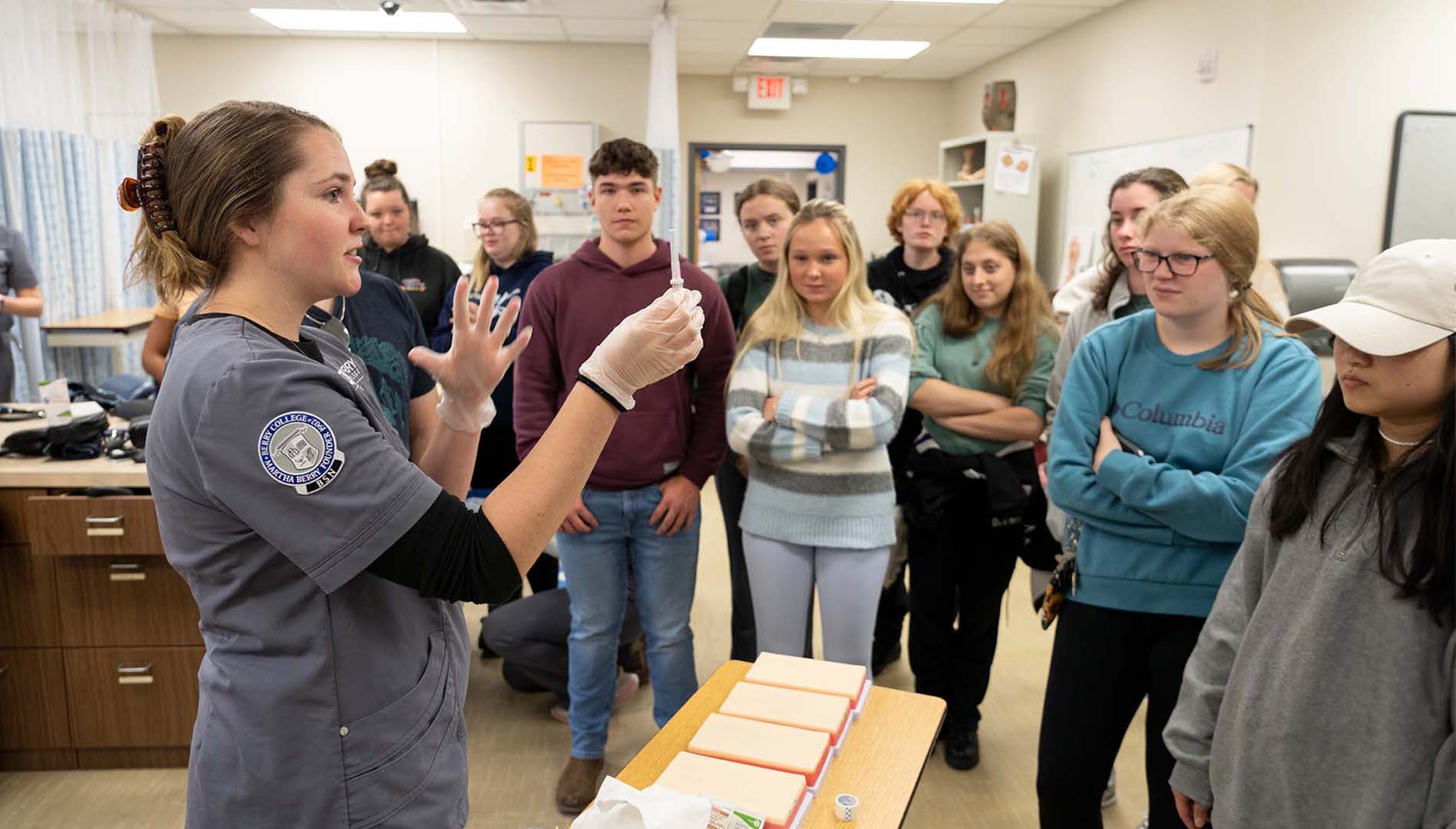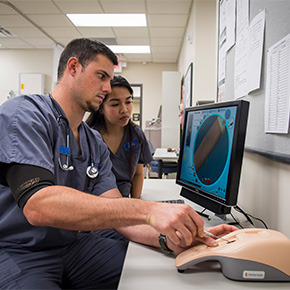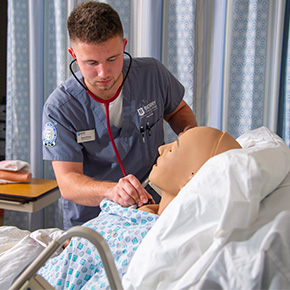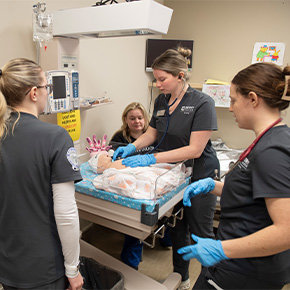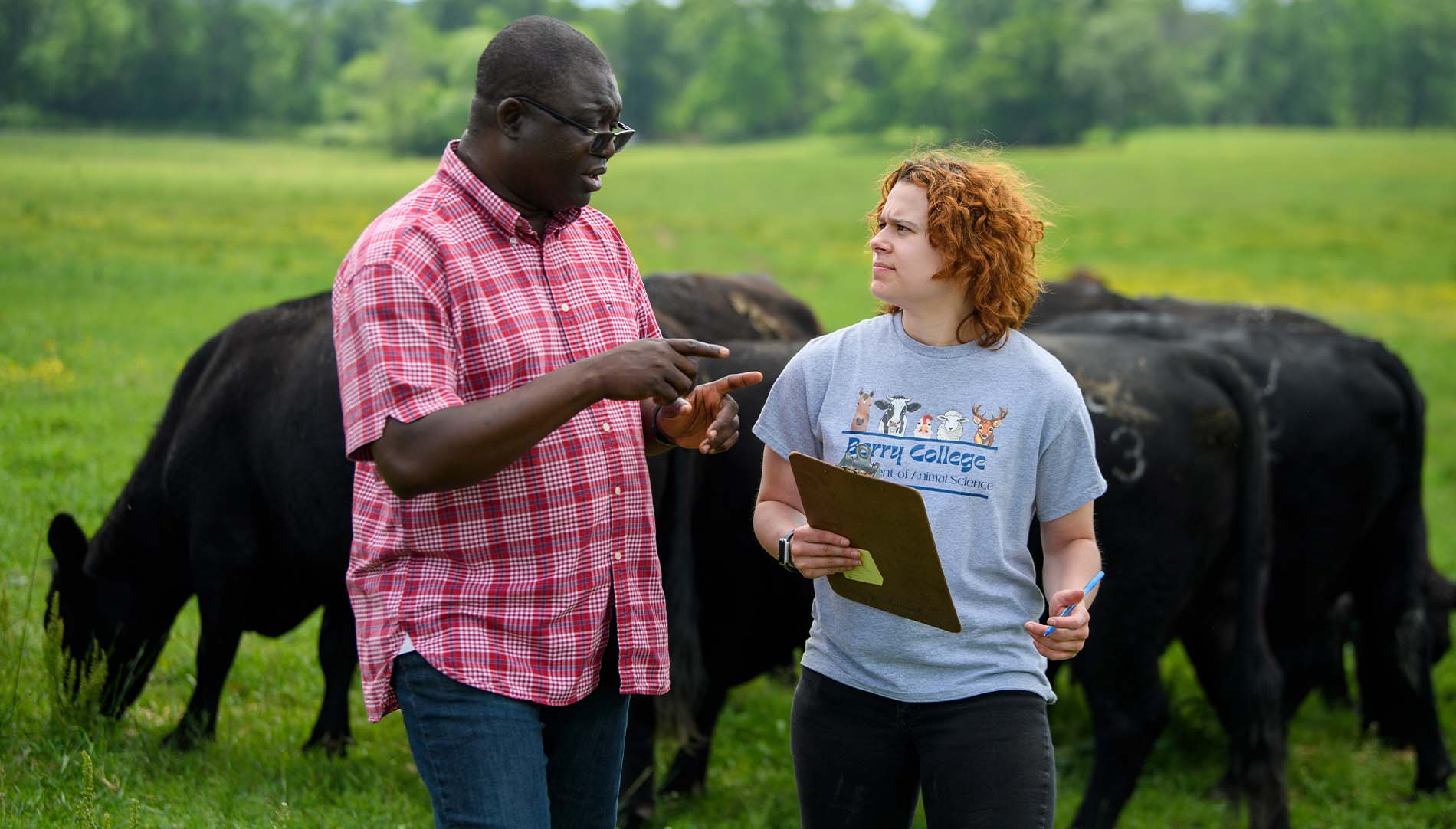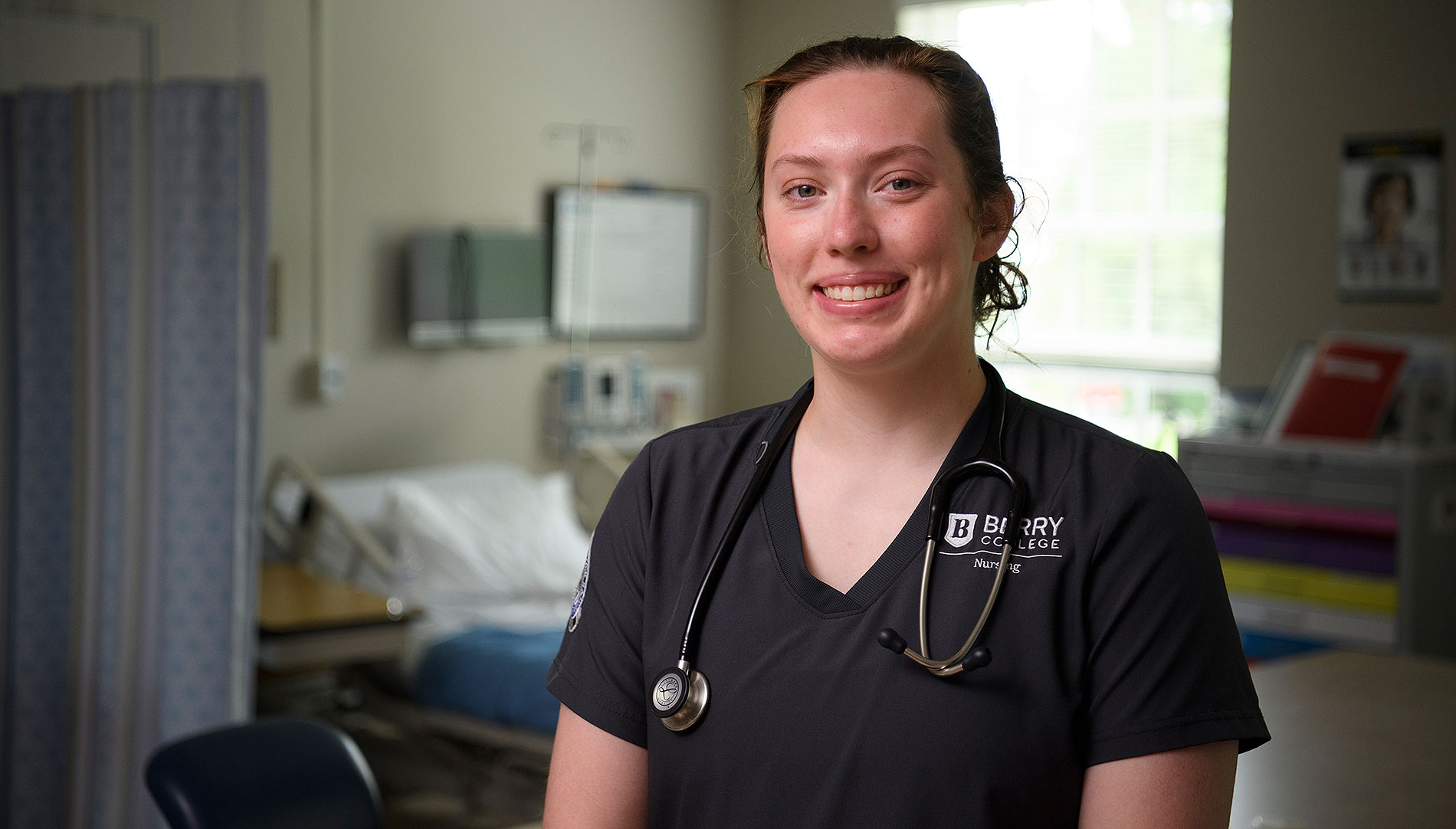4. Practice prioritizing ethical decisions
Nurses are certainly not strangers to ethical dilemmas in their work and must develop a strong moral compass in high-stress moments. Because this is commonplace in the medical field, navigating difficult situations during training can help prepare students and develop a strong ethical framework for their futures. From understanding patient rights to confidentiality issues, programs that incorporate ethics into curriculum and lab scenarios give students practice in making principled decisions in complex situations.
Referencing the strength of Berry’s ethical training in the nursing program, Grace Eckstein says that when nursing students say they attend or graduated from Berry, they are immediately given a certain amount of respect: “Hospitals in the northwest Georgia area immediately trust you. As a nursing lab supervisor, I helped set up and participated in the practice scenarios, and now, as an ER nurse I see how Berry prepared me for this level of intensity.”
5. Develop strong collaboration and leadership skills
Nurses need significant experience working with others. In many situations, nurses will be a part of a team of health-care workers navigating a difficult patient situation. They need to be comfortable discussing different scenarios and coming to a combined conclusion to take action.
Fabian Cummings, a registered nurse II in the Emergency Department at Wellstar Cobb Hospital, got experience working on an interdisciplinary team providing direct patient care at Heyman Hospice in Rome, Georgia, while studying nursing at Berry. Prior to this position, he was unsure of the role he wanted to take. Observing the nurses at Heyman Hospice helped him better understand the power of teamwork in nursing.
Nurses often take on leadership roles, too, whether in direct patient care, administration or education. Nursing programs that offer leadership training, mentorship opportunities and experiences in team management uniquely prepare students to continue growing in their career development.
6. Hone effective communication with empathy and attention to detail
